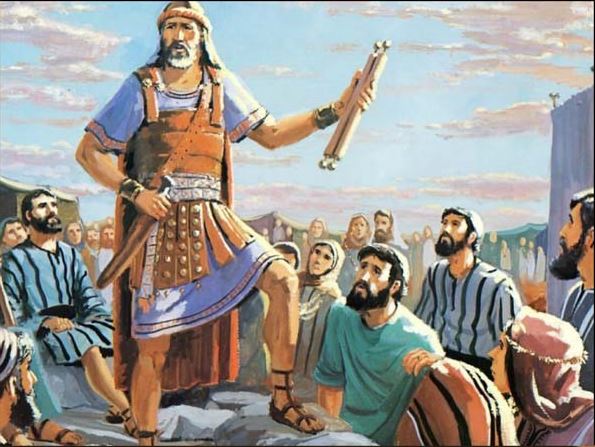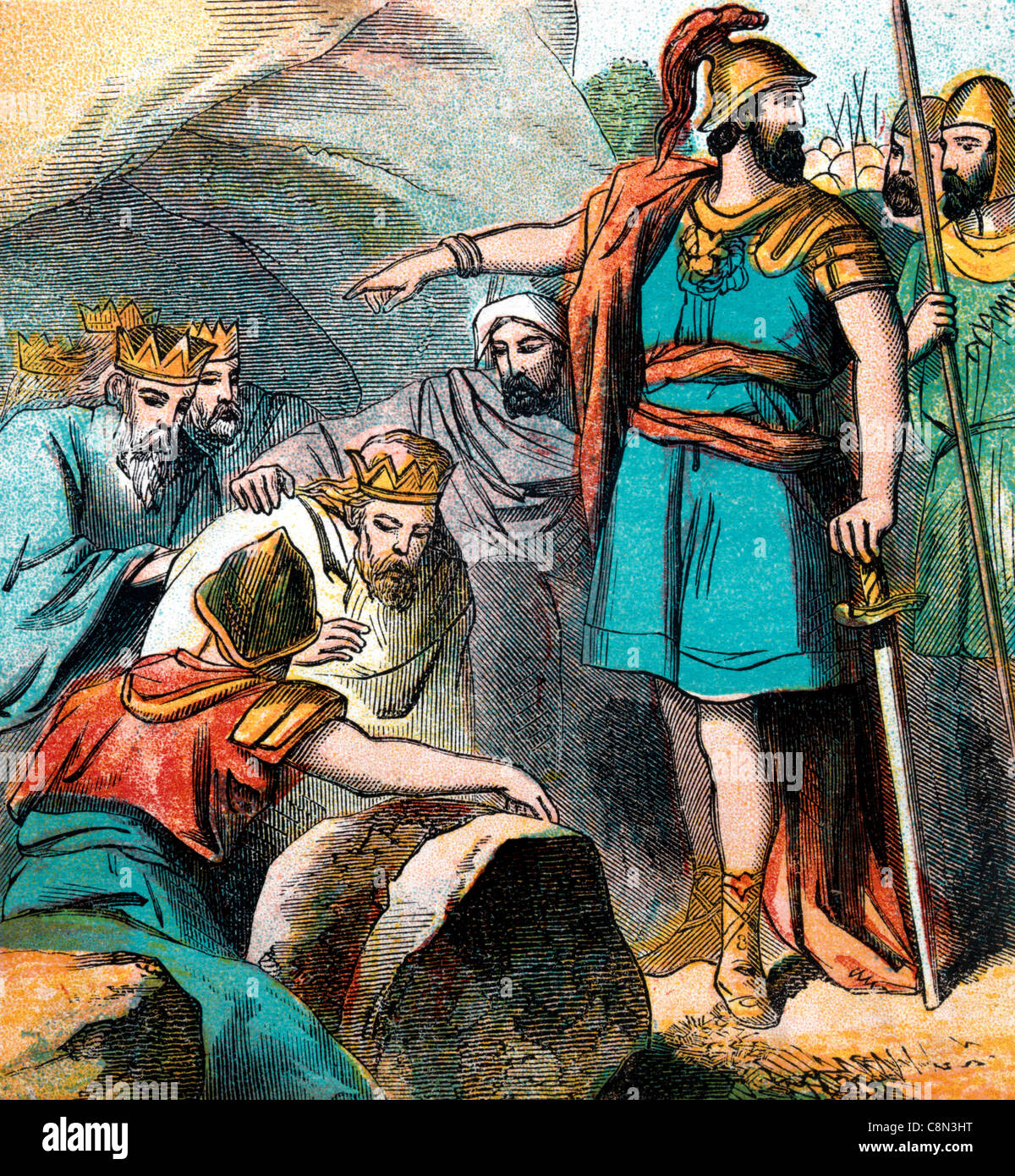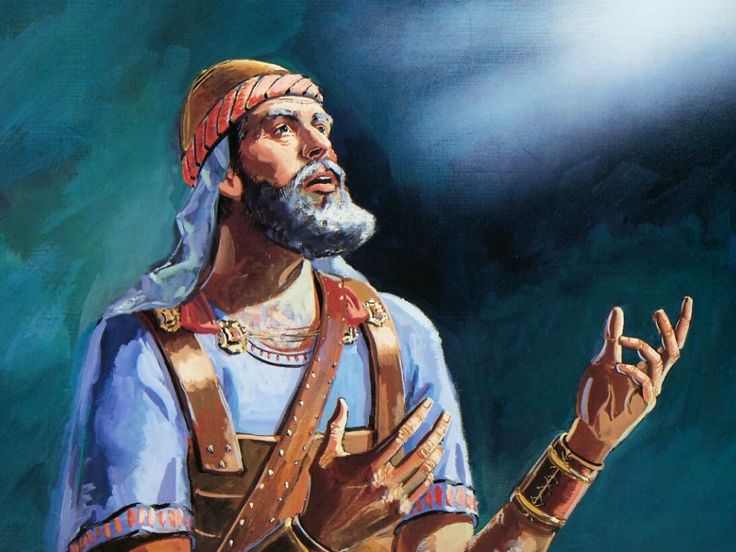When we talk about individuals who shaped history, whose actions echoed through generations, it's almost impossible to overlook the monumental impact of figures like Joshua. His story, really, is a fascinating account of someone stepping into immense shoes and guiding a whole group of people through incredible challenges. This is a person whose influence, you know, stretches far beyond just his immediate time, leaving behind a deep mark on cultural and spiritual narratives.
He was, in some respects, a key player in the grand narrative of the exodus, a period of dramatic change and fresh beginnings for a people seeking their place. His early responsibilities, too, were quite substantial, taking on the task of assembling and directing a fighting force for their very first skirmish after leaving Egypt. This initial test, against the Amalekites, was, arguably, a moment that truly set the stage for his future roles.
This exploration will, therefore, delve into the various aspects of his remarkable life, from his initial emergence as a capable soldier to his eventual rise as a revered leader. We will look at the moments that defined him, the qualities that made him stand out, and the enduring messages his life still offers. It’s a narrative, quite simply, that speaks to courage, devotion, and the weight of immense responsibility.
- Why Did Gary Burghoff Leave The Tv Show Mash
- Lebron James Mom Picture
- 80s Rap
- How Old Is Lil Wayne
- Long I Love You Text
Table of Contents
- Who Was Joshua Hall?
- Personal Details of Joshua Hall
- What Made Joshua Hall a Key Figure?
- How Did Joshua Hall Take the Reins?
- What Was Joshua Hall's Enduring Legacy?
- Where Can We Learn More About Joshua Hall?
Who Was Joshua Hall?
Joshua, whose name in Hebrew is Yehoshua, stepped onto the historical stage as a figure of great importance during the exodus events, a time of immense movement and change for a people emerging from bondage. He wasn't just, you know, a bystander; he held a central position in the unfolding drama. His initial appearance in the narrative sees him entrusted with a truly significant assignment by Moses, the revered leader of the time. This task involved hand-picking and directing a group of fighting men for their very first armed encounter after leaving Egypt. This early leadership role, so early in their collective journey, really set a precedent for his future contributions.
He was, in fact, the one chosen to step into the leadership role after the passing of Moses, a transition that, as a matter of fact, carried incredible weight. The text tells us quite clearly that after Moses, the servant of the Lord, had died, the Lord Himself spoke to Joshua, the son of Nun, who had served as Moses' close assistant. This divine communication underscored the profound shift in leadership and the immense responsibility that now rested upon Joshua's shoulders. It was a clear signal that he was to continue the vital work of guiding the people.
The story of Joshua is, in a way, a powerful depiction of a divine kingdom making its presence felt within the existing structure of nations. During that historical period, national groups and political structures were often seen as creations of various gods, serving as living proof of their power and influence. Joshua's narrative, then, presents a different kind of authority, one that challenges or, perhaps, redefines these conventional understandings of power and dominion. It's a story that highlights a unique interplay between spiritual guidance and worldly actions, offering a fresh perspective on leadership and governance.
- Love You More Phrases
- Mariah Riddlesprigger
- John Astin
- You Are An Amazing Man Quotes
- Actor John Full House
Personal Details of Joshua Hall
| Full Name (Hebrew) | Yehoshua |
| Parentage | Son of Nun |
| Role under Moses | Moses' Aide / Minister / Assistant / Second in Command |
| Successor to | Moses |
| Primary Achievement | Led the Israelites into the Promised Land |
| Key Qualities | Devoted student, saintly man, brilliant military leader, strength, unwavering faith |
| Central Biblical Book | The Book of Joshua |
What Made Joshua Hall a Key Figure?
What truly set Joshua apart, making him such a central figure in the long historical account, was his unique blend of qualities and his willingness to embrace immense responsibilities. He wasn't just a follower; he possessed an innate capacity for leadership, a strategic mind, and, very importantly, a deep personal commitment. His actions, from the very beginning, demonstrated a readiness to take charge in challenging situations, guiding people through moments of uncertainty and conflict. This innate drive, coupled with his practical abilities, certainly made him stand out among his peers.
The Bible, you know, paints a picture of Joshua as someone truly exceptional. He's described as a person dedicated to learning, a man of great virtue, and someone with a keen military mind. These attributes weren't just theoretical; they were put into practice throughout his service. His ability to grasp complex situations, to inspire confidence in those around him, and to execute plans with precision were, quite frankly, vital for the success of the people he was guiding. He was, in a way, the complete package for the demanding roles he was asked to fill.
From his initial emergence as a young soldier, learning the ropes under Moses, to his eventual elevation as the primary leader, Joshua’s path was marked by a steady progression of increasing responsibility and demonstrable skill. This journey, too, highlights a consistent pattern of growth and adaptation, showing how he developed from a trusted subordinate into a commanding figure capable of leading an entire nation. His rise was not, apparently, sudden, but rather a gradual unfolding of his inherent talents and acquired wisdom.
Leading the Charge - Joshua Hall's First Battle
One of the earliest and most telling moments that showcased Joshua's leadership prowess occurred shortly after the people had left Egypt. Moses, recognizing his capabilities, entrusted him with the critical task of assembling and commanding a group of fighters for their very first military engagement against the Amalekites. This wasn't just, like, a minor skirmish; it was a significant test of their collective strength and resolve as a newly freed people. The responsibility placed on Joshua was immense, requiring not only strategic insight but also the ability to rally and direct a diverse group of individuals who were, in many ways, new to organized combat.
His role in this initial confrontation was, quite frankly, pivotal. He had to select individuals with the right temperament and skills, organize them into a cohesive unit, and then direct their efforts on the battlefield. This was a moment that demanded quick thinking and decisive action, qualities that Joshua clearly possessed. The outcome of this battle, too, would have a lasting impact on the morale and confidence of the people, making Joshua's success in this early test incredibly important for their ongoing journey. It was, essentially, a proving ground for his future leadership.
How Did Joshua Hall Take the Reins?
The transition of leadership after Moses’ passing was, quite naturally, a moment of profound significance and, arguably, great uncertainty for the people. Moses had been their guide, their voice, their constant presence for so long. The void left by his departure was, therefore, immense. It was into this crucial moment that Joshua was called to step forward, not by popular vote or a pre-arranged succession plan in the human sense, but by a clear divine appointment. The weight of this responsibility, you know, must have been truly staggering.
The text emphasizes this moment of transition, stating that after the death of Moses, the Lord spoke directly to Joshua, the son of Nun, who had previously served as Moses’ assistant. The message was direct and clear: “Moses my servant is dead.” This declaration marked a definitive end to one era and the unequivocal beginning of another. It was a moment that demanded immediate action and unwavering resolve from Joshua, as he was now tasked with continuing the immense work that Moses had started. This was, basically, a direct handover from a higher authority.
This period of succession wasn't just about a change in personnel; it represented a continuation of a divine plan. Joshua was not simply inheriting a position; he was being entrusted with a sacred duty, a continuation of the covenant and the promise. His preparation under Moses, his proven loyalty, and his personal character all converged at this point, making him, in some respects, the ideal candidate for such a monumental undertaking. The transition, while challenging, was, therefore, orchestrated with a clear purpose.
A Divine Appointment for Joshua Hall
The way Joshua assumed leadership truly underscores the belief that his role was divinely ordained. The narrative explicitly states that after Moses, the Lord's servant, had passed away, it came to pass that the Lord Himself spoke to Joshua, the son of Nun, Moses' minister. This direct communication from the divine source was, basically, the ultimate endorsement of his authority. It wasn't a human decision alone; it was a clear directive from a higher power, giving his leadership a unique legitimacy and purpose.
The words spoken to Joshua, "Moses my servant is dead. Now therefore arise, you and all these people," were not just a statement of fact but a powerful call to action. They signaled a new chapter, a fresh mandate for him to lead the entire community forward. This direct instruction provided him with the necessary authority and, quite possibly, the personal courage to take on such a colossal task. It was, in a way, a solemn charge, reminding him of the great mission that lay ahead and the divine backing he possessed.
This divine appointment also served to reassure the people. Knowing that their new leader had been chosen and affirmed by the same divine presence that had guided Moses must have instilled a sense of confidence and continuity. It helped bridge the gap left by Moses' absence and solidified Joshua's position as the legitimate successor. This spiritual endorsement was, therefore, a crucial element in establishing his leadership and preparing the people for the next phase of their collective journey.
What Was Joshua Hall's Enduring Legacy?
Joshua's lasting impact on history is, quite frankly, immense, primarily centered around his pivotal role in leading the Israelites into the promised land. This was not just a simple geographic relocation; it represented the fulfillment of a long-held promise, the culmination of years of wandering and hardship. His ability to guide an entire people, with all their complexities and challenges, through this monumental undertaking truly cemented his place as a figure of enduring significance. He was, in some respects, the instrument through which a profound historical and spiritual destiny was realized.
His story is often seen as a powerful illustration of strength, a testament to his unwavering resolve in the face of daunting obstacles. He possessed a leadership style that combined strategic brilliance with a deep sense of purpose, inspiring those around him to press forward. And, very importantly, his unwavering faith served as a constant anchor, providing guidance and resilience through periods of doubt and adversity. These qualities, you know, are what truly define his legacy, making him a model for future generations.
The narratives surrounding Joshua highlight his transformation from a relatively young soldier, learning the ropes and participating in early battles, to a seasoned and commanding figure. This progression showcases a remarkable capacity for growth and adaptation, demonstrating how he matured into the leader required for such a momentous task. His journey, basically, serves as a compelling example of how individuals can rise to meet extraordinary challenges when called upon.
Faith and Fortitude - The Qualities of Joshua Hall
The qualities attributed to Joshua are, quite simply, remarkable and provide a deep insight into his character. He is portrayed as a devoted student, someone who consistently sought wisdom and understanding, likely from Moses himself and from the divine guidance he received. This dedication to learning suggests a humble spirit and a continuous desire to grow, which are, arguably, essential traits for any effective leader. His intellectual curiosity, in a way, fueled his capacity to lead.
Beyond his intellectual pursuits, Joshua is also described as a saintly man, indicating a profound moral compass and a life lived in accordance with deeply held principles. This spiritual integrity would have been crucial in earning the trust and respect of the people he led. His personal piety, too, would have served as a powerful example, encouraging faithfulness and adherence to shared values among the community. This moral foundation was, therefore, as important as his strategic abilities.
Furthermore, his reputation as a brilliant military strategist speaks to his practical acumen and his ability to navigate complex situations. Leading a large group, like your, people into a new territory, often through hostile encounters, required exceptional planning, tactical insight, and the capacity to make quick, effective decisions under pressure. His military successes were not just about brute force; they reflected a keen understanding of strategy and logistics, making him, quite honestly, a truly formidable figure on the battlefield. These combined attributes made him a truly unique and effective leader.
Where Can We Learn More About Joshua Hall?
For those interested in exploring the life and times of Joshua, the primary source of information is, naturally, the biblical book that bears his name. This book serves as the main
- Price Of Gasoline In Norway
- Sokratis Dortmund
- Henna Hand Design Simple
- 70s Men Hairstyles
- Why Did Gary Burghoff Leave The Tv Show Mash


